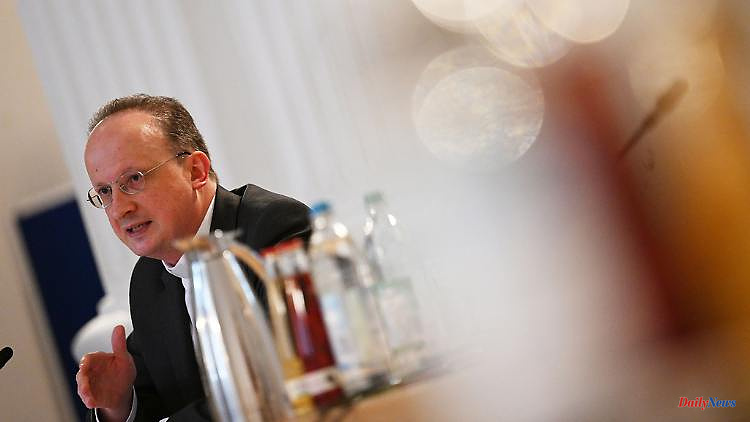In January, a study into sexual abuse in the Archdiocese of Munich and Freising shook the Catholic Church. The experts assumed 497 victims - and a large number of unreported cases. However, more and more light is now falling on this.
Munich (dpa / lby) - The old woman is particularly memorable: "She spoke about it for the first time 70 years after the abuse," says Elisabeth Dreyßig. "Many people who have experienced abuse suffer for the rest of their lives." Dreyßig works at the contact and advice center for those affected by sexual abuse, which the Archdiocese of Munich and Freising set up after the presentation of the shocking abuse report in January. According to their information, 223 people reported there by the beginning of July, including 93 affected people and six relatives.
Many of these cases had already been included in the report, says Dreyßig. "But there were also people among them who reported for the first time - triggered by the report." According to Vicar General Christoph Klingan, 48 other potential victims reported to the diocese after the study was presented. It was unclear to what extent these reports and the callers to the advice center overlapped.
According to the information, 60 percent of the callers were older than 60 years. 139 callers were men, 84 women. "Even the parents didn't believe their children when they tried to tell them about the abuse. They accused them of lying because a pastor doesn't do that."
53 percent of the accused in the cases referred to the counseling center were priests, 29 percent religious and 11 percent church workers, including teachers and educators in kindergartens. "Nobody believed them," says Dreyssig about the victims. "These children were completely alone."
The shocking study presented in January assumes at least 497 victims and 235 alleged perpetrators - and from a much larger number of unreported cases. The report also found that sexual abuse cases had not been adequately addressed for decades. The report accuses the former Archbishops Friedrich Wetter and Joseph Ratzinger, today Benedict XVI, of personal misconduct in several cases - as does the current Archbishop Cardinal Reinhard Marx, who is now trying to do better.
The Archdiocese is now also focusing on prevention. Since 2018, there has been a mandatory training program for all pastoral staff, in which, according to the responsible head of the department, Lisa Dolatschko-Ajjur, around 90 percent of those addressed have taken part.
Since the German Bishops' Conference (DBK) resolved higher payments for victims of sexual abuse in 2020, the archdiocese has paid out a total of 246,000 euros, according to head of office Stephanie Herrmann. Out of 50 cases pending before the Independent Commission that decides payments, 25 have been paid so far.
When asked if she thinks the amount of the payments of 5,000 to 50,000 euros is appropriate for those affected, Dreyßig says: "If a life is messed up, it's never enough."
According to the first figures from the municipalities, the report has resulted in a further increase in the number of people leaving the church. And last year more people left the church than ever before. 359,338 Catholics nationwide turned their backs on their church. That was almost 86,600 more than in the previous record year 2019.
In the meantime, this is also leaving its financial mark in the Archdiocese of Munich and Freising. The diocese expects a loss of more than 32 million euros for the current year. "There is clearly a negative development here," says Archbishop Finance Director Markus Reif.
At the same time, income from church taxes - despite the massive number of people leaving the church - has not yet plummeted as much as feared. The diocese expects tax revenue of 622.6 million euros this year - around 25 million less than in 2021. According to Reifs, another reason for the minus are higher costs due to inflation. Head of department Stephanie Herrmann speaks of "massive cost increases in building maintenance".
The Archdiocese wants to get the increasingly tense financial situation under control through an "overall strategy process" and, in case of doubt, also cancel certain church offers if they are not taken up enough. What that should be is not yet clear, said Herrmann. It is also still being examined which properties the archdiocese can do without in the future. There should be a pilot project for this, but according to Herrmann it is still unclear when and where.
In addition to income from church taxes, the archdiocese also received 130 million euros in public grants last year, of which 63 million went for the operation of schools and 13 million for religious instruction in state schools.
The bishop, for example, is also paid from state funds. According to Reifs, negotiations are underway to slowly replace state subsidies like these and no longer use them.












